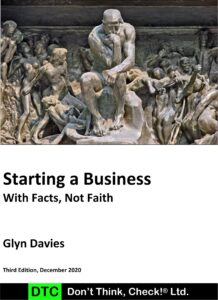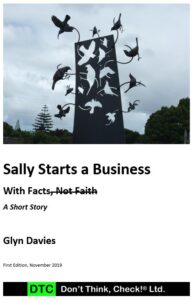Most of us have an inclination to want to express ourselves, to be seen, to be heard, i.e., to be noticed and to matter, and to be understood. Some could even be accused of liking the sound of their own voice. So why should we bother with this humble inquiry then?
“Humble inquiry is the fine art of drawing someone out, of asking questions to which you do not already know the answer, of building a relationship based on curiosity and interest in the other person.” P2.
Unless one lives alone and doesn’t need to interact with and is not dependent on anyone, then there isn’t a lot of need for humble inquiry. However, as Schein points out, we live in “an increasingly complex, interdependent, and culturally diverse world,” P1, where cultures arise wherever people gather, e.g., in national, regional, social, work, professional, and even familial congregations.
We can choose to ignore cultural diversity, we can even ostracise, or worse, those who don’t fit in. But not only are these approaches ignorant, immoral, they are also impractical and short-sighted in our increasingly “complex and interdependent” world.
A quick foray into culture is necessary to establish a common meaning: “we can think of culture as the accumulated shared learning of a given group, covering behavioral, emotional, and cognitive elements of the group members’ total psychological functioning. For such shared learning to occur, there must be a history of shared experience that, in turn, implies some stability of membership in the group. Given such stability and a shared history, the human need for stability, consistency, and meaning will cause the various shared elements to form into patterns that eventually can be called a culture.” P17 Organizational Culture and Leadership.
This leads to a definition of culture as “a pattern of shared basic assumptions that was learned by a group as it solved its problems of external adaptation and internal integration, that has worked well enough to be considered valid and, therefore, to be taught to new members as the correct way to perceive, think, and feel in relation to those problems.” P17 Organizational Culture and Leadership.
Or, put less eloquently and more bluntly, culture can be considered “the way we do things around here,” where ‘do things’ can be substituted with see, interpret, think, believe, behave, etc.
The book was set within and describes aspects of culture in the USA, and from experience, there are similarities in New Zealand, especially as pertains to the subject. And that is, there is a predominant tendency to tell someone something, as in tell them a story or give (tell) them an instruction as opposed to asking the right question, such as “what are your thoughts?” or “how would/should you/we go about it?”
“The US culture is strongly built on the tacit assumptions of pragmatism, individualism, and status through achievement. These assumptions introduce a strong bias for getting the job done, which, combined with individualism, leads to a devaluing of relationship building, teamwork, and collaboration except as a means to the end of task accomplishment. Given those cultural biases, doing and telling are inevitably valued more than asking and relationship building. However, as tasks become more complex and interdependent, collaboration, teamwork, and relationship building will become more necessary. That in turn, will require leaders to become more skilled in Humble Inquiry.” P66.
The problem with telling, and it is a problem, is that aside from non-interdependent activities and certain emergency situations where there is no time for a genteel exchange of ideas and points of view (situations that are ordinarily far rarer than most would care to admit), most people prefer to be asked about their concerns, for their input, and they prefer to be heard and to be understood. As Schein writes, “[w]hat we choose to ask, when we ask, what our underlying attitude is as we ask – all are key to relationship building, to communication, and to task performance.” And, “[t]he missing ingredients in most conversations are curiosity and willingness to ask questions to which we do not already know the answer.” P4.
Unfortunately telling is valued as we live in a “pragmatic, problem solving culture, in which knowing things and telling [and showing] others what we know is valued.” P10. However, telling is also often seen as a way of exercising or claiming authority, perhaps more than is right or deserved and being told puts the recipient in an inferior status position and being told what one already knows can lead to a range of feelings such as mild amusement, irritation, frustration, loss of face, anger, and disengagement from the relationship or task.
Healthy relationships are based on trust, and if we define ‘trust’ as believing that another person will not put their self-interest above, or at least not at the expense, of your own, then, “[f]or everyone to do their part appropriately requires good communication; good communication requires building a trusting relationship; and building a trusting relationship requires Humble Inquiry.” P5.
But why Humble?
“Humility, in the most general sense, refers to granting someone else a higher status than one claims for oneself. To be humiliated means to be publicly deprived of one’s claimed status, to lose face.” P10.
Schein refers to three types of humility “1) the humility that we feel around elders and dignitaries; 2) the humility that we feel in the presence of those who awe us with their achievements; and 3) Here-and-now Humility, which results from our being dependent from time to time on someone else in order to accomplish a task that we are committed to.” P5.
The thrust of the book is on the third form of humility, that required in interdependent relationships where cooperation, passion, and commitment are required to achieve a task, and that done well, humble inquiry “does not influence either the content or the form of the response.” P43.
Perhaps, quite simply we should follow the adage that we have two ears and one mouth, and that we should use them in the same ratio – Epictetus, and as a final thought, perhaps “the single biggest problem in communication is the illusion that it has taken place” – George Bernard Shaw.
References
Humble Inquiry – The gentle art of asking instead of telling. Edgar H. Schein, 2013.
Organizational Culture and Leadership (2nd. Ed.). Edgar H. Schein, 1992.



